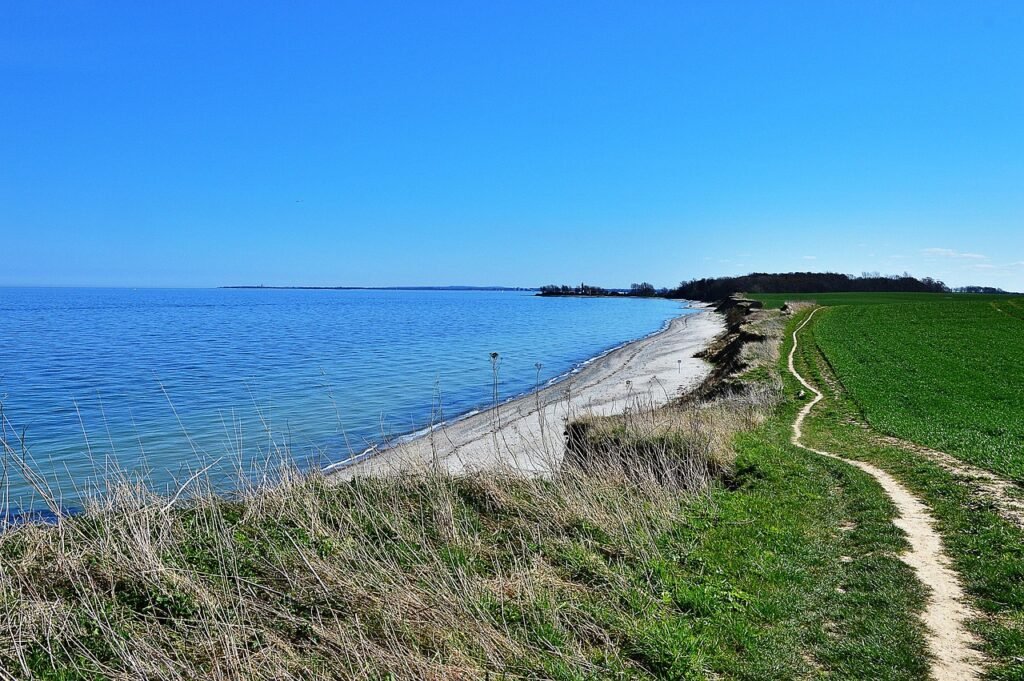Beaches, those stretches of sand, shingle, or pebbles bordering oceans, seas, lakes, and rivers, hold an undeniable allure. More than just picturesque landscapes, they offer a multitude of experiences, from tranquil relaxation to exhilarating adventures. Whether you’re a sunbather seeking serenity, a surfer chasing the perfect wave, or a family building sandcastles, beaches cater to diverse interests and provide a vital connection to nature. This guide explores the multifaceted appeal of beaches, delving into their environmental significance, recreational opportunities, and the factors that make them such cherished destinations.
The Allure of Beaches: More Than Just Sand
Beaches are so much more than just pretty places to visit. They are dynamic environments playing crucial roles in coastal ecosystems, providing a playground for recreation, and driving local economies. Understanding their significance is vital for responsible enjoyment and conservation.
Ecological Importance
- Coastal Protection: Beaches act as natural buffers against erosion, absorbing wave energy and protecting inland areas from storm surges. Their sand dunes provide a further line of defense.
- Habitat Diversity: Beaches support a variety of plant and animal life, from shorebirds foraging for food to sea turtles nesting in the sand. Intertidal zones are particularly rich in biodiversity. Examples include fiddler crabs, sandpipers, and various marine algae.
- Water Filtration: The sand and sediment in beaches can act as natural filters, removing pollutants from the water before it reaches the open ocean.
Economic Significance
- Tourism Revenue: Beaches attract millions of tourists each year, generating significant revenue for local economies through hotels, restaurants, and recreational activities.
- Recreational Activities: Beaches provide opportunities for swimming, surfing, fishing, boating, and other water sports, supporting related businesses and jobs.
- Property Values: Coastal properties with beach access command higher values, contributing to local tax revenues.
Planning Your Perfect Beach Getaway
Careful planning can make all the difference in ensuring a memorable and enjoyable beach vacation. Consider your interests, budget, and travel style when choosing a destination and arranging your trip.
Choosing the Right Beach
- Consider your interests: Are you looking for a relaxing beach with calm waters, or a beach with opportunities for surfing and other water sports? Do you prefer secluded coves or bustling resorts?
* Example: Families with young children might prefer beaches with shallow, calm waters like those found along the Gulf Coast of Florida. Surfers might seek out beaches known for their powerful waves, such as those in Hawaii or California.
- Research the amenities: Check for the availability of restrooms, showers, lifeguards, and other amenities. Consider accessibility for people with disabilities.
- Read reviews: Look at online reviews from other travelers to get an idea of the beach’s cleanliness, safety, and overall atmosphere.
Essential Beach Packing List
- Sunscreen: Protect your skin from harmful UV rays with a broad-spectrum sunscreen with an SPF of 30 or higher.
- Swimsuit and cover-up: Pack comfortable swimwear and a cover-up for walking around.
- Towel: Bring a quick-drying towel or beach blanket.
- Sunglasses and hat: Shield your eyes and face from the sun.
- Flip-flops or sandals: Protect your feet from hot sand and rough surfaces.
- Reusable water bottle: Stay hydrated by bringing a reusable water bottle.
- Beach umbrella or shade: Provide yourself with shade during peak sun hours.
Staying Safe at the Beach
- Swim in designated areas: Only swim in areas that are monitored by lifeguards.
- Be aware of rip currents: Learn how to identify rip currents and how to escape them. If caught in a rip current, swim parallel to the shore until you are out of the current.
- Stay hydrated: Drink plenty of water to avoid dehydration.
- Protect yourself from the sun: Wear sunscreen, sunglasses, and a hat.
- Be aware of marine life: Be cautious of jellyfish, stingrays, and other marine animals.
- Never swim alone: Always swim with a buddy.
Beach Activities for Everyone
From relaxing on the sand to engaging in thrilling water sports, beaches offer a diverse range of activities for all ages and interests.
Relaxation and Sunbathing
- Find a comfortable spot: Spread out your towel, apply sunscreen, and relax in the sun.
- Read a book or listen to music: Enjoy some quiet time with your favorite book or music.
- Watch the waves: Observe the rhythmic movement of the ocean and the beauty of the surrounding landscape.
- Practice mindfulness: Focus on your breath and the sensations of the sun and sand.
Water Sports and Recreation
- Swimming: Enjoy a refreshing dip in the ocean.
- Surfing: Catch some waves and experience the thrill of riding the ocean.
- Snorkeling and Scuba Diving: Explore the underwater world and discover marine life.
- Kayaking and Paddleboarding: Paddle along the coastline and enjoy the scenery.
- Fishing: Cast a line and try your luck at catching some fish.
- Beach volleyball: Organize a friendly game of volleyball with friends or family.
Beachcombing and Nature Exploration
- Collect seashells: Search for unique and beautiful seashells along the shoreline.
- Identify marine life: Learn about the different types of marine animals that live in the area.
- Explore tide pools: Discover the fascinating creatures that inhabit tide pools at low tide.
- Photograph the scenery: Capture the beauty of the beach with your camera.
Preserving Our Beaches: Environmental Responsibility
Beaches are fragile ecosystems that are increasingly threatened by pollution, climate change, and human activity. It is crucial to practice environmental responsibility when visiting beaches to help protect them for future generations.
Reducing Your Environmental Impact
- Pick up your trash: Dispose of all trash properly in designated receptacles.
- Avoid single-use plastics: Bring reusable water bottles, bags, and containers.
- Respect wildlife: Avoid disturbing marine animals or their habitats.
- Use reef-safe sunscreen: Protect coral reefs by using sunscreen that does not contain harmful chemicals.
- Conserve water: Take shorter showers and avoid wasting water.
- Support sustainable tourism: Choose eco-friendly accommodations and activities.
Volunteering and Conservation Efforts
- Participate in beach cleanups: Join organized beach cleanups to remove trash and debris.
- Support conservation organizations: Donate to organizations that are working to protect beaches and marine ecosystems.
- Educate others: Share your knowledge about beach conservation with friends and family.
- Advocate for responsible policies: Support policies that protect beaches and coastal areas.
Conclusion
Beaches are invaluable natural assets that offer a wealth of benefits, from ecological importance to recreational opportunities and economic contributions. By understanding their significance and practicing responsible stewardship, we can ensure that these beautiful and vital ecosystems continue to thrive for generations to come. Remember to plan your trips thoughtfully, respect the environment, and enjoy all that beaches have to offer responsibly.

